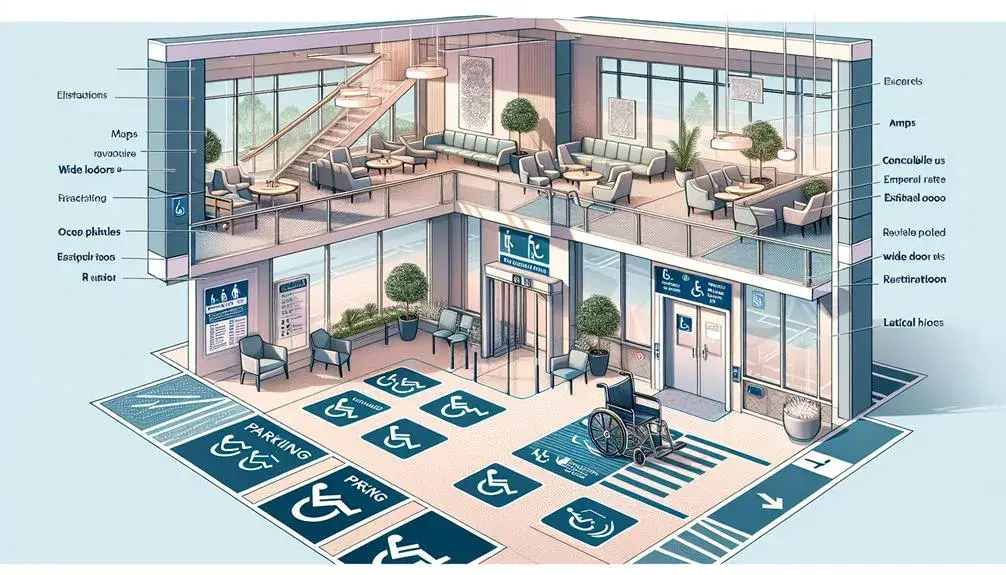The process of selecting a suitable office space rental for a medical practice entails more than just considering the size and cost of the facility. A crucial, yet often overlooked, aspect of this process is the accessibility of the office. An easily accessible office not only ensures convenience for the staff but also for the patients, who may be dealing with various health challenges that limit their mobility. Various factors, such as proximity to public transportation, availability of dedicated parking spaces, and adherence to the Americans with Disabilities Act (ADA) standards, play a significant role in determining the accessibility of an office. We invite you to explore these factors in detail, as understanding them can significantly enhance your ability to select an office space that meets the needs of all its users.
Understanding Accessibility in Office Environments.
In the context of office spaces, accessibility refers to the ease with which patients, staff, and other visitors can reach and navigate the premises. This encompasses several aspects, including location, transportation links, building design, and interior layout. A central location with good public transport connections ensures easy commuting for staff and patients. The building design must comply with the guidelines of the Americans with Disabilities Act (ADA) to ensure access for all individuals. The interior layout should be intuitive and easy to navigate, with clear signage and obstacle-free pathways. Furthermore, ample parking, especially for the disabled, enhances the accessibility of the office. Thus, accessibility plays a pivotal role in the selection of offices for a medical space rental agency.
Evaluating Location and Transportation Options
When assessing potential office spaces for a medical rental agency, a thorough evaluation of the location’s proximity to major transportation routes and its accessibility via various modes of transport is crucial. This ensures that the office remains convenient and reachable for both staff and patients.
Consider the following factors: Proximity to Major Roads and Highways – Direct access to freeways can reduce commute times. – Nearby arterial roads can facilitate local accessibility. Public Transportation Options – Proximity to bus stops or train stations can provide alternatives for staff and patients. – Regularity and reliability of services should be considered. Pedestrian and Cyclist Access – Sidewalks and bike lanes can promote environmentally friendly commute options. – Safe pedestrian crosswalks are important for patient safety.
Choosing a location with diverse transportation options fosters a sense of inclusion and belonging among staff and patients.
Conclusion
In conclusion, the selection of an easily accessible office space can radically transform the functionality and profitability of a medical practice. The fusion of strategic location, transportation options, and accessibility design can yield a professional environment that is nothing short of a patient magnet. Therefore, the importance of these factors when seeking a medical office space rental cannot be overstated. Ultimately, an accessible office space is a critical investment that can propel a medical practice to stratospheric heights of success.

